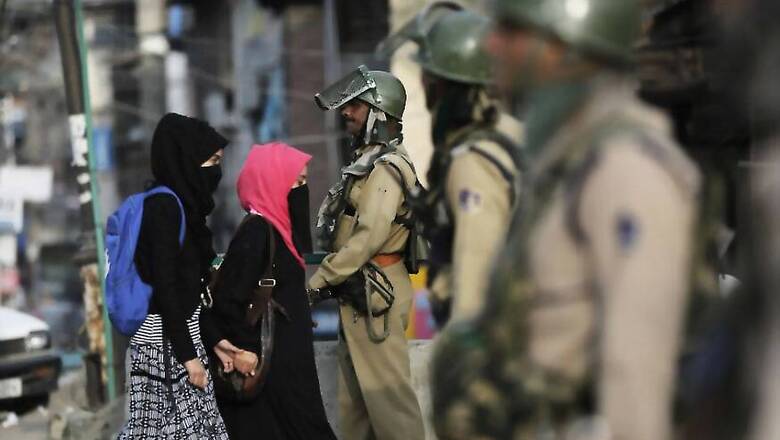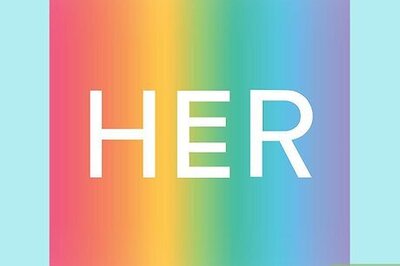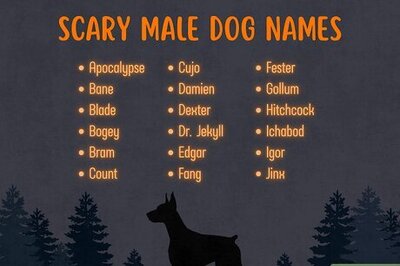
views
Srinagar: Dineshwar Sharma, the former Intelligence Bureau chief and government interlocutor for Jammu and Kashmir, will start a "sustained dialogue" on Monday, but the atmosphere on the ground is not very optimistic.
"We have no faith in this dialogue process. Home Minister Rajnath Singh had promised pellet guns will not be used in Kashmir, but Indian forces continue to blind Kashmiris using pellet bullets. If home minister's words can't be trusted, how can we trust an interlocutor?" asks Mehak, a Pulwama Degree College student.
After a brief lull, some parts of the Valley once again erupted in violence on the eve of Sharma's visit. Clashes between locals and security forces occurred in Mangama and Pulwama after the locals hurled stones on the latter during a search operation. The forces retaliated, resulting in injuries to five people.
Pellet is one of the irritants for any common Kashmiri, and forces such as the CRPF say that they have no other option to control the stone-pelting crowd.
Can Dineshwar Sharma offer a middle path on the issue? But this is the least of the various challenges facing Sharma.
Statements from the highest echelons of the Central government in the last few days have made Sharma's already-challenging task further grueling.
Addressing an election rally in Himachal Pradesh's Kullu, Prime Minister Narendra Modi, referring to the incidents of stone-pelting, said that jawans from the hilly state were coming under attack.
Former Jammu and Kashmir chief minister Omar Abdullah called Modi's remarks a reflection of the failure of the state government. "On the campaign trail PM Modi highlighting the failure of his ally Mehbooba Mufti and her administration,” Omar tweeted.
Sana, a student from South Kashmir, says that people in her state resort to stone pelting only when they see no other option. "Forces enter our colleges and harass girl students. We have to save our honour, and throwing stones is the only way," she says.
Addressing a rally in Karnataka, the Prime Minister, responding to Congress leader P Chidambaram's call for more "autonomy" to the violence-stricken state, said the demand was "anti-national".
Arif, a radio jockey in Srinagar, says autonomy is guaranteed to Kashmiris in the Constitution. "You say talks will happen within the framework of the Constitution, but then you reject autonomy. Tell me: how do we trust you?"
The distrust between the Kashmiris and government deepened the day Sharma's appointment was announced by the home minister. Rajnath said that Sharma will have a free hand to engage with all the stakeholders hinting at the separatists.
However, Minister of State PMO Dr. Jitender Singh had other ideas. "How can you speak to people who indulge in violence and act at Pakistan's behest," Singh asked.
The Hurriyat Conference, a week later, rejected the dialogue, jeopardizing the entire process.
Basheer, a taxi driver in Srinagar, says that the akhrot walas, the shikara walas, the tour operators met home minister Rajnath Singh. "This section has been meeting everyone, but real representatives are the Hurriyat," he says, adding that you may not like them, but the fact is they are influential.
"What is the use of this dialogue if they are not a part of it?"
Sharma has tried to sidestep these tricky questions. Just before touching down in Srinagar, he told PTI that he didn't have any magic wand, but will try his best to resolve the issue. "Judge me by my work and not through the prism of the past."
However, the sentiment on the ground is that Sharma's appointment is a non-serious one. Sources told CNN-News18 that the Hurriyat refused the dialogue receiving a red flag from Pakistan. "They didn't deny dialogue on their own, and therefore, cannot be reached out to through back channels," a source said.
Sources confirmed to CNN-News18 that agencies in the Valley are working overtime to establish some contact with the Hurriyat representatives, but so far, their participation looks unlikely.




















Comments
0 comment